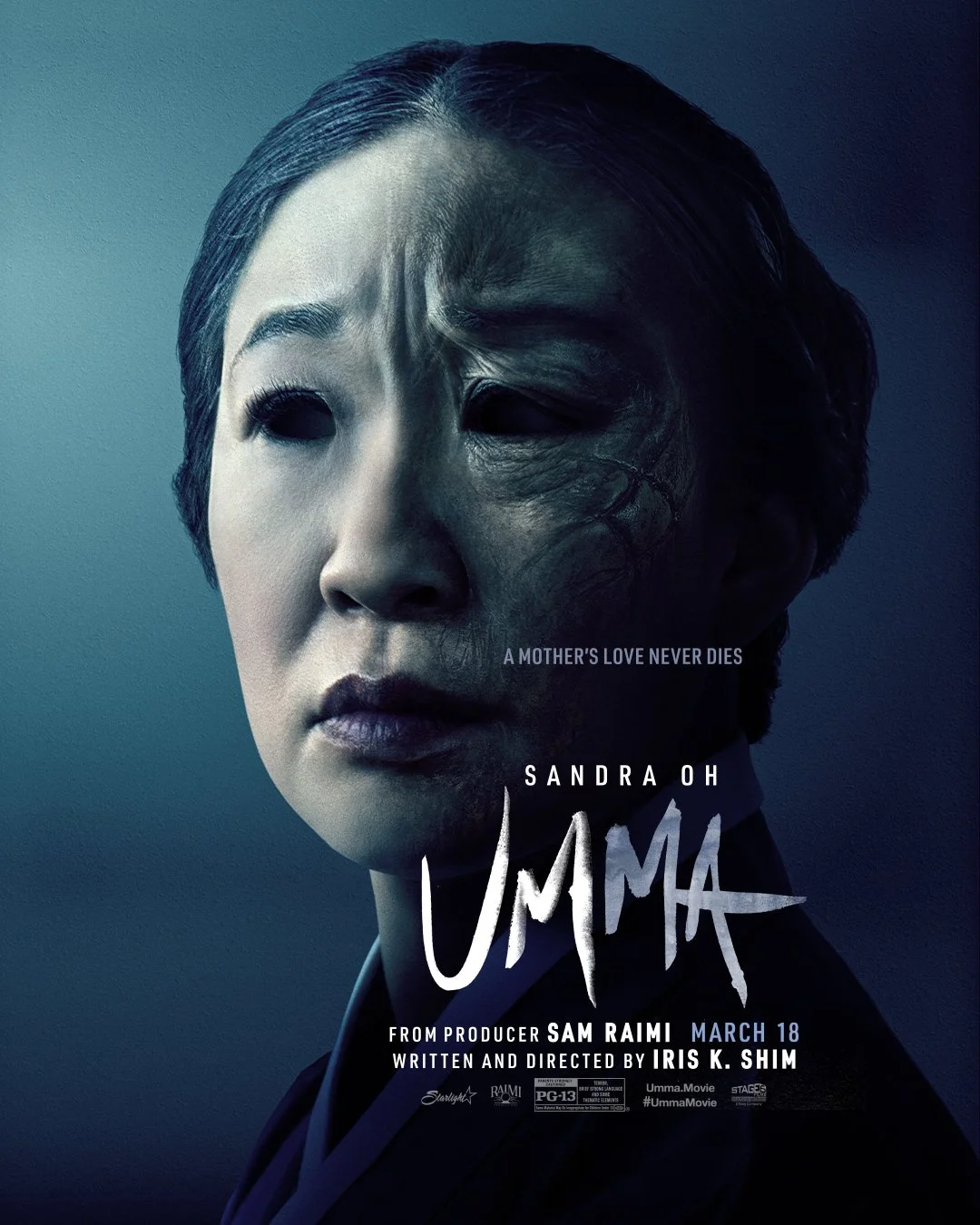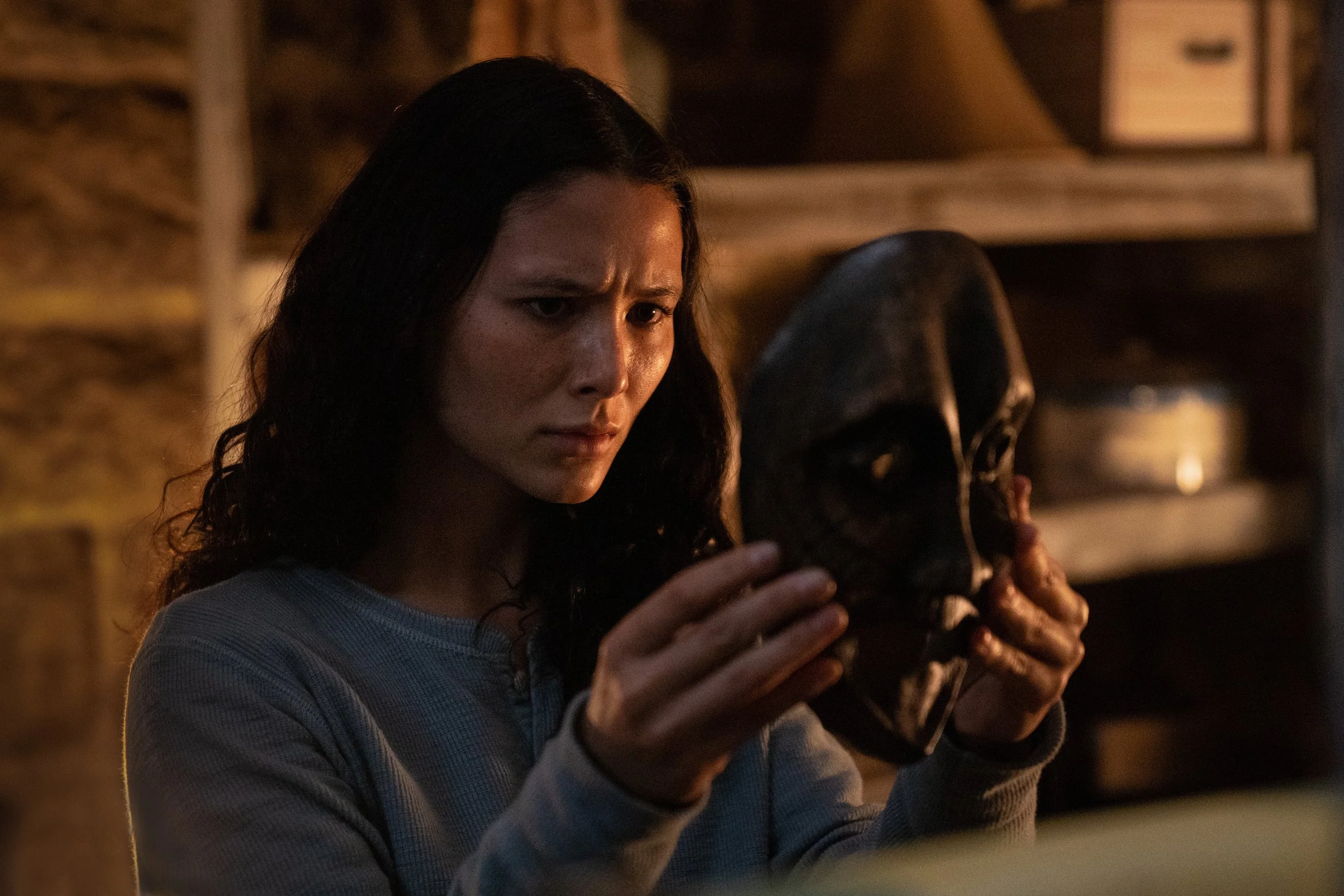Fivel Stewart and The Terror of Not Belonging
Mixed Asian Media - March 24, 2022
By Nathan Liu
Three years ago, I wrote an article about the untapped potential of Asian American horror — meaning horror films starring, and centering on the unique fears of, AAPI people. In it, I pitched some movie ideas and explained why I believe this kind of picture is good, not just for Asian people, but for studios looking to capitalize on new markets. Well, someone must have listened, because Sony just released Umma, a horror film written and directed by a Korean American, Iris K Shim, and starring the spectacular Sandra Oh as a woman possessed by the ghost of her immigrant mother. I was lucky enough to interview one of the flick’s stars, Fivel Stewart, who plays Oh’s daughter, who shared her thoughts on horror, identity, and the changing landscape of Hollywood.
Interview
Fivel Stewart in Umma
How do you identify?
I identify as Native American/American Asian.
How, if at all, has your identity shaped your life and career?
Well, I think I’m still working on that. I’m 25, and I grew up very American. With my mom, very Asian. So I think I’m trying to find myself and to find where I fit in, and who I feel most like. I think it’s a learning journey for me, because I have so much of a melting pot inside my body. So I think I’ll always be learning how I identify.
Umma is something of a first; a major studio horror film, directed by, and starring, AAPI women. Was that at all a draw for you? Why did you decide to join the project?
Yeah, I would say that was a huge draw. I love Korean dramas. I love Japanese dramas. I love Chinese dramas. So to be a part of one was a dream of mine. When I got Umma, I was really, like, passionately into my Korean dramas. I got the audition, and I was nervous that I wasn’t going to be Asian enough. Which is really unfortunate to feel. But it worked out. […] It’s like, people look at you and they’re like “Oh, you’re Asian, but also, like, American?” And Asian people look at you like, “Oh, you’re American.” And it’s like, never good enough. I’ve had so many experiences. More recently too, where Asian people will be so mean to me. They’ll look me up and down, and be like, you know... Or to not be considered as “Asian” because I present myself more American. It’s just so interesting. I’m like, having that crisis right now.
Horror is a unique genre because, in addition to being extremely cheap to produce, and even more profitable, it allows people to explore certain issues in a way that a straight drama wouldn’t. Like, how many white people would have fully comprehended micro-aggressions without Get Out? As such, do you think there should be more AAPI horror? And if so, what kind of issues would you like those AAPI horror stories to tackle?
Yeah, I mean, you know, it’s really interesting that Asian horror’s now getting acknowledged. Because there are so many Asian horrors that are so freaking good. One that you probably know is Parasite. Everyone knows that. And that speaks about so much. Privilege. Underprivileged. And just living as an Asian family in one household, having to make an amount of money and even live properly. I think that Asian horror films have such a beautiful slot right now to represent the cultures — what it’s like. So I think Umma coming out right now is in a really good place, and for what it talks about — to not run away from your culture and your heritage and your family — I think it fits nicely in the horror industry.
Do you have any other projects lined up that you’re excited about that you’d like to share?
Yeah, I have a show coming out on Apple, which I think I’ll be promoting in April. And then I’m currently in Montreal shooting a Netflix show.
And finally, what advice would you offer other mixed and AAPI creatives thinking of joining the entertainment industry?
Oh my God, do it! This is our time! This is our time! It doesn’t matter what you look like. If you want to be creative, if you want to do something, just do it. Don’t let anyone stop you.
End of Interview
Sony Pictures’ Umma is now playing in theaters everywhere.
Nathan Liu is a screenwriter, playwright, and true blue pizza addict. Spending most of his early life in Germany, and being part Chinese on his father's side, Nathan was exposed to many different cultures growing up. His experience in film and theater includes penning scripts for Pixeldust Studios, and writing the play "Christmas By The Pond," which was awarded "Best One Act" at the Broke People Play Festival. Follow him on Twitter @TheNathanLiu, and read his blog, Liusviews.wordpress.com.



